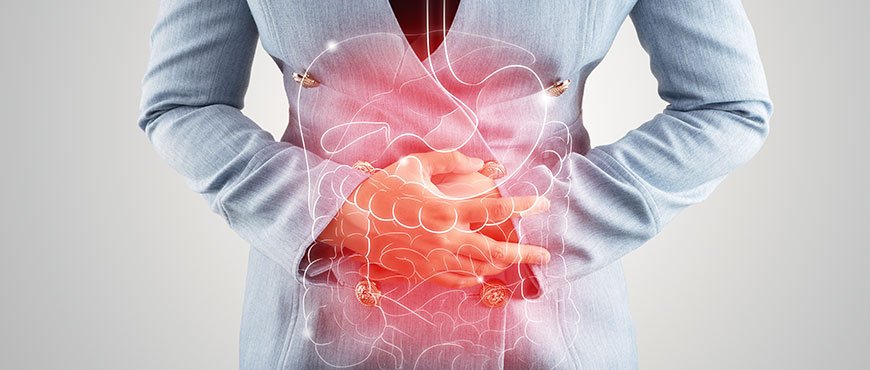Diet plays a pivotal role in Medical Gastroenterology health, influencing the prevention, management, and treatment of various digestive disorders. At Vijaya Trauma Care, our team of expert gastroenterologists recognizes the importance of dietary interventions in optimizing digestive health. This comprehensive guide explores the significance of diet in gastroenterology and how adopting a tailored nutritional approach can promote overall well-being and alleviate GI symptoms.

Understanding Gastrointestinal Health:
Gastrointestinal health encompasses the functioning of the digestive system, including the esophagus, stomach, intestines, liver, gallbladder, and pancreas. A balanced diet rich in nutrients, fiber, and hydration is essential for maintaining optimal digestive function and preventing conditions such as gastroesophageal reflux disease (GERD), irritable bowel syndrome (IBS), inflammatory bowel disease (IBD), and liver disorders.
The Impact of Diet on Digestive Disorders:
Certain dietary factors can exacerbate or alleviate symptoms associated with digestive disorders. For example, individuals with GERD may benefit from avoiding acidic and spicy foods, while those with IBS may find relief by following a low-FODMAP diet. Similarly, patients with IBD may need to modify their diet to manage inflammation and improve symptom control. Our gastroenterologists near me provide personalized dietary recommendations tailored to each patient’s specific condition and needs.
Nutritional Strategies for Digestive Wellness:
At Vijaya Trauma Care, we emphasize the importance of adopting a balanced and nutritious diet to support digestive wellness. Our gastroenterologists work closely with registered dietitians to develop customized meal plans that address individual dietary preferences, intolerances, and medical conditions. We promote the consumption of whole foods, fruits, vegetables, lean proteins, and healthy fats while minimizing processed foods, sugar, and alcohol intake.
The Role of Fiber in Digestive Health:
Dietary fiber plays a crucial role in promoting digestive health by supporting regular bowel movements, preventing constipation, and promoting the growth of beneficial gut bacteria. Our gastro surgery clinic recommend incorporating fiber-rich foods such as whole grains, fruits, vegetables, legumes, and nuts into daily meals to support gastrointestinal motility and reduce the risk of digestive disorders.
Hydration and Gut Health:
Adequate hydration is essential for maintaining optimal digestive function and preventing dehydration-related complications such as constipation. Our gastroenterologists advise patients to drink sufficient water throughout the day and limit the consumption of dehydrating beverages such as caffeine and alcohol. Hydration supports the transport of nutrients, lubricates the digestive tract, and promotes overall digestive comfort.
The Gut Microbiome and Dietary Factors:
Emerging research suggests that the gut microbiome plays a significant role in digestive health and overall well-being. Certain dietary factors, such as prebiotic and probiotic-rich foods, can support a healthy gut microbiota and reduce the risk of gastrointestinal disorders. Our gastroenterologists educate patients on incorporating fermented foods, yogurt, kefir, and dietary supplements into their diet to promote gut microbiome diversity and resilience.
Nutritional Support for Digestive Disorders:
In addition to dietary modifications, nutritional supplements may be recommended to support digestive health and manage specific conditions. Our gastroenterologists prescribe supplements such as probiotics, digestive enzymes, omega-3 fatty acids, and vitamin D to address deficiencies and optimize gastrointestinal function. These supplements can complement dietary changes and enhance the effectiveness of medical treatments for digestive disorders.
Conclusion:
In conclusion, diet plays a crucial role in maintaining digestive health and preventing gastrointestinal disorders. At Vijaya Trauma Care, our team of expert gastroenterologists emphasizes the importance of adopting a balanced and nutritious diet to support overall well-being and alleviate GI symptoms. Through personalized dietary recommendations, nutritional counseling, and supplementation, we empower patients to make informed choices that promote digestive wellness and enhance their quality of life.
FAQ:
- What is Gastroenterology in medical?
Gastroenterology in medicine is the branch that focuses on diagnosing and treating disorders of the digestive system, including the esophagus, stomach, intestines, liver, gallbladder, and pancreas.
- What is a gastroenterology test?
Gastroenterology tests include procedures like endoscopy, colonoscopy, and imaging studies such as MRI and CT scans. These tests are used to diagnose and evaluate conditions affecting the digestive system.
- What test for stomach problems?
At Vijaya Trauma Care, tests for stomach problems may include endoscopy, upper gastrointestinal (GI) series, CT scans, and blood tests. These diagnostic procedures help identify the underlying cause of stomach issues for accurate diagnosis and treatment.
- How do you test for stomach gas?
At Vijaya Trauma Care, testing for stomach gas may involve breath tests, imaging studies such as X-rays or CT scans, and blood tests to measure certain biomarkers. These diagnostic tools help identify the presence and cause of excess gas in the stomach.

